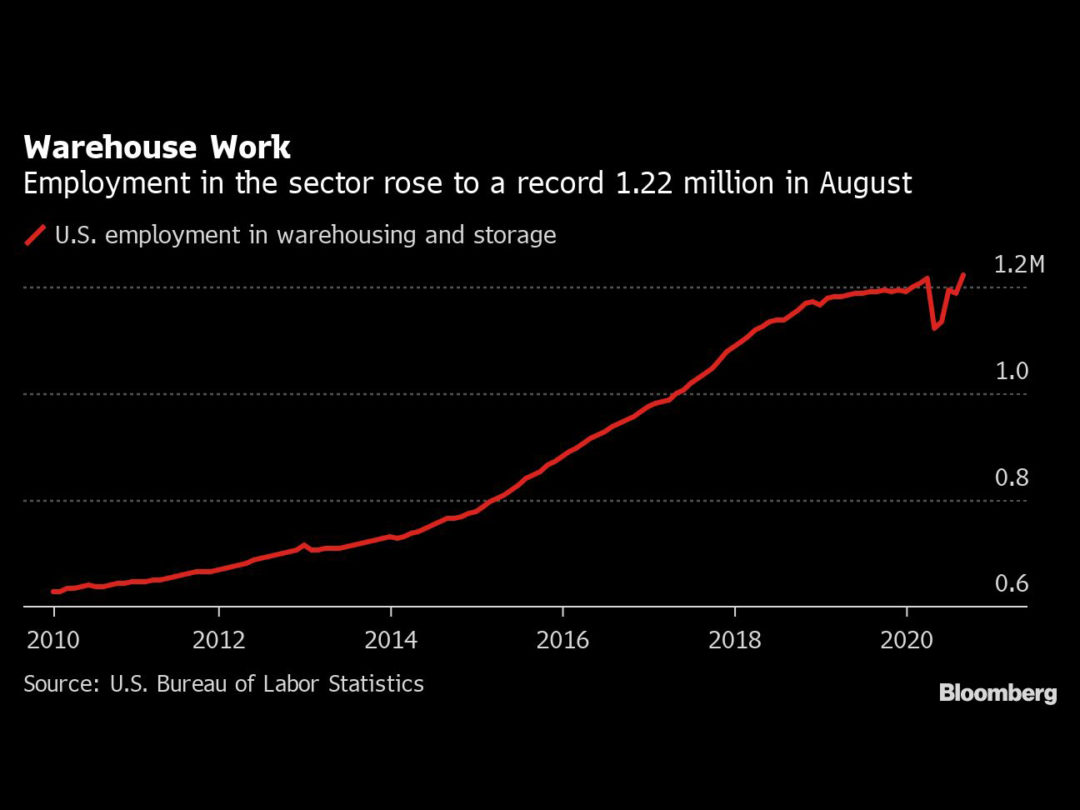
Home » Robots Driving Forklifts Score Venture Capital, Create Jobs
Robots Driving Forklifts Score Venture Capital, Create Jobs

September 17, 2020
Silicon Valley investors are increasing bets on a Pittsburgh company that turns a venerable machine of the past century of industrialization — the forklift — into a driver of the e-commerce boom.
Seegrid Corp., a maker of autonomous forklifts and robot-powered vehicles used to move materials around warehouses and factories, just closed on equity financing totaling $52 million from Menlo, California-based venture fund G2VP LLC and an undisclosed group of tech and robotics investors.
The deal, with UBS Group AG serving as an adviser, brought to $150 million the total amount of funding received by Seegrid, which has a valuation of more than $400 million.
The fresh round of financing during a pandemic underscores the rising demand to shore up supply chains increasingly dependent on warehouses and distribution hubs as consumer dabbling with online shopping turns more habitual. Seegrid expects to double revenue this year and plans to add 100 workers to an existing payroll of 240 employees, Chief Executive Officer Jim Rock said.
“2021 is looking to be an even bigger and better year,” he said in an interview. “We’re adding customers like mad and our existing customers are adding more, so it’s a good time to be in the robot business.”
Made by divisions of Toyota and Mitsubishi and then outfitted with software and robotic technology, Seegrid’s vehicles are joining workplaces teeming with humans.
In the U.S., employment in warehousing and storage rose to a record 1.22 million in August, government data show, marking a recovery of all such jobs eliminated during the depths of COVID-19 lockdown in April.
The pandemic is turning the traditional seasonal patterns in e-commerce demand into a year-round lift to online consumption. That’s forcing companies to invest in better technology and more labor to ensure their supply chains can identify and adjust to the new purchasing patterns.
“They’re teaching people how to work with the technology, not how to replace people by technology,” said Peter Bolstorff, executive vice president of corporate development at the Association for Supply Chain Management, an industry group based in Chicago. “The idea is, how do you scale that supply-chain workforce to be able to work more effectively with technology — either physical robots or system robots.”
Seegrid, founded in 2003 by scientists including robotics pioneer Hans Moravec from Carnegie Mellon University, remains heavily influenced by the school renowned for scientific and industrial research. Giant Eagle Inc., a Pittsburgh-based chain of grocery stores, is a majority shareholder.
Rock said the coronavirus crisis is accelerating what had been a more gradual embrace of automation not unlike the advances of America’s industrial past that raised worries about job losses for people.
“The wheel barrel and the conveyor belt didn’t put people out of work — they made companies more competitive so they can hire more people and that’s exactly what’s happening with robots,” he said. “There will be shifts in the nature of work, but I don’t buy into the overall net decrease in available work and labor opportunities — it’s an evolution to a different type of job.”
RELATED CONTENT
RELATED VIDEOS
KEYWORDS Conveyors & Sortation E-Commerce/Omni-Channel HR & Labor Management Lift Trucks & AGVs order fulfillment robotics
Related Directories
Subscribe to our Daily Newsletter!
Timely, incisive articles delivered directly to your inbox.
Popular Stories

2024 Supply Chain Management Resource Guide: There's Only One Way Off a Burning Platform
VIEW THE LATEST ISSUECase Studies
-
Recycled Tagging Fasteners: Small Changes Make a Big Impact
-

Enhancing High-Value Electronics Shipment Security with Tive's Real-Time Tracking
-

Moving Robots Site-to-Site
-
JLL Finds Perfect Warehouse Location, Leading to $15M Grant for Startup
-
Robots Speed Fulfillment to Help Apparel Company Scale for Growth



